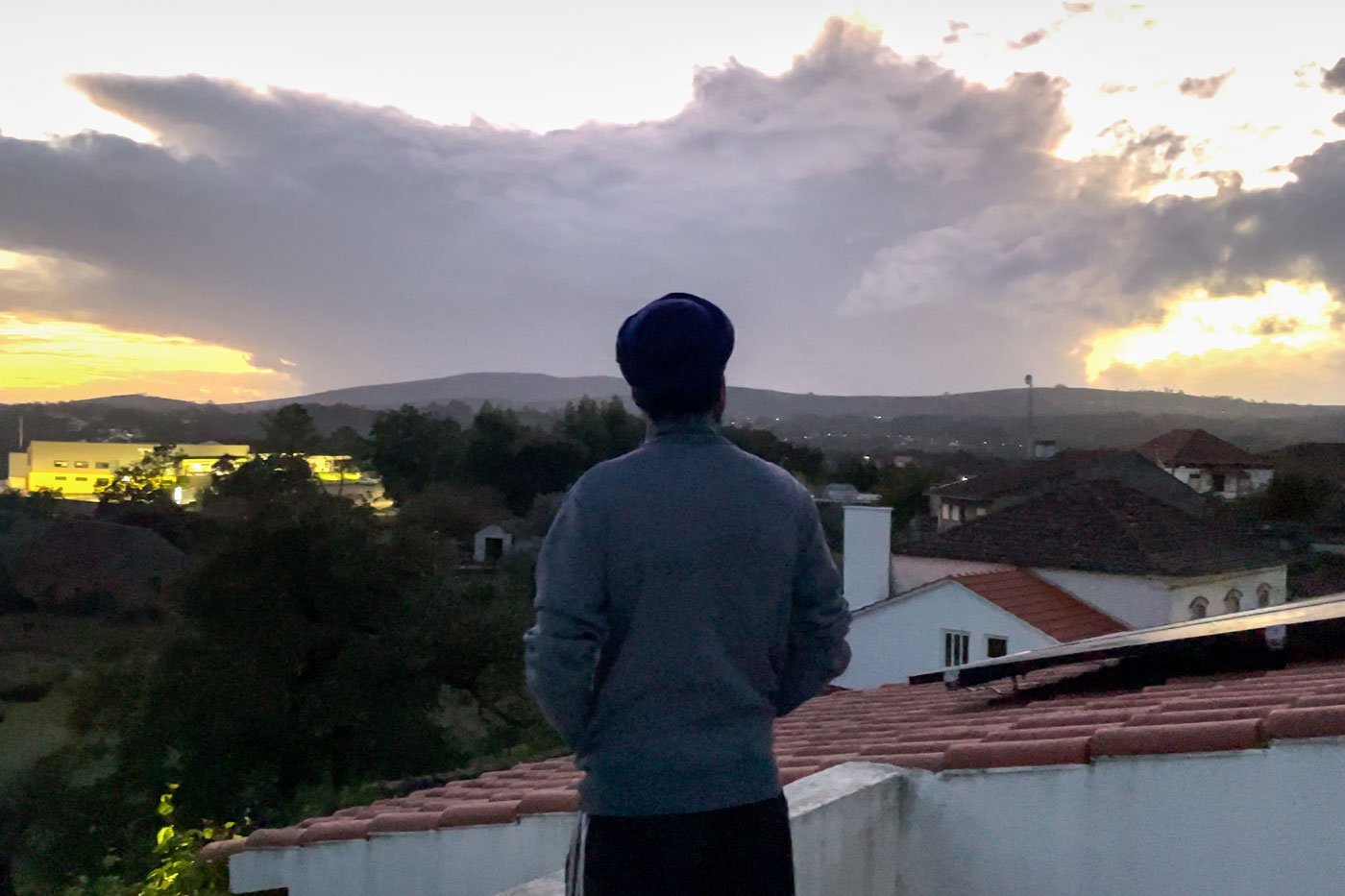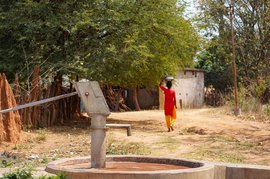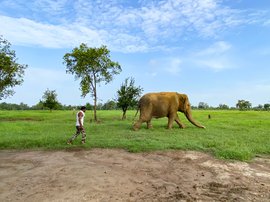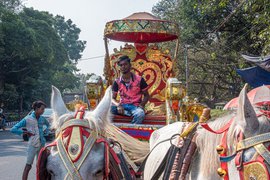Singh still gets nightmares about the travel agent who belongs to his pind (village) in Punjab.
To pay the agent Singh (not his real name) sold his family’s one-acre of farm land. In return, the agent Jatinder promised “ ek number [legal papers]” that would ensure his safe passage to Portugal via Serbia.
Very soon Singh realised he had been tricked by Jatinder and trafficked across international borders. Shocked and dismayed, he could not bring himself to inform his family back in the village about his plight.
On his journey out, while crossing dense forests, wading through sewers and climbing mountains across Europe, he and other migrants survived on water from rainy puddles, and eating only bread, a food which he has come to hate.
“Mere father saab heart patient aa. Inna tension oh leh ni sakte. Nale, ghar mein ja nahi sakda kyun ke mein sara kuch dau te lake aya si. [My father is a heart patient; he can't handle so much tension. I couldn’t return home because I had put everything at stake to come to here],” says 25-year-old Singh, speaking in Punjabi at the two-room rented accommodation in Portugal he shares with five other people.
Over the years, Portugal has emerged as a favoured
destination for workers from South Asian countries like India, Nepal,
Bangladesh, Pakistan and Sri Lanka.

Singh sold his family’s one-acre of farm land to buy 'legal papers' that would ensure his safe passage to Portugal via Serbia
Singh once aspired to join the Indian Army, but, after a few unsuccessful attempts, he switched his aim to migrating out of the country and chose Portugal for its easier immigration policies. Stories of other men from his village who were believed to have successfully migrated to this country in Europe were his inspiration. And then one day, someone told him about Jatinder who belonged to the same village and who promised to help.
“Jatinder told me, ‘I will take 12 lakh rupees (roughly 13,000 euros) and send you legally to Portugal.’ I agreed to pay the full amount and insisted that we must follow a legitimate path,” says Singh.
However, at the time of making the payment, the agent urged him to use a “different way” rather than through a bank. When Singh resisted, Jatinder insisted he do as he was told. Keen to go, Singh complied and the first tranche of Rs. 4 lakhs (4,383 euros) was handed over at a petrol station in Jalandhar, Punjab, and later Rs. 1 lakh (1,095 euros) at a shop.
Singh left for Delhi in October 2021 and he was to fly to Belgrade and then Portugal. It was his first flight ever, but the airline refused to let him board as flights from India to Serbia were not operational due to Covid-19 restrictions – a fact his agent had hidden from him. He had to be re-booked through Dubai, from where he travelled to Belgrade.
“The agent who received us at Belgrade airport confiscated our passports saying that Serbian police are not good, and they do not like Indians. We were scared,” says Singh, who handed over his passport.
Singh often uses the phrase “ do number ” to explain illegal means of travel, such as his trip from Serbia’s capital Belgrade to Thiva in Greece. The donkers (human smugglers) accompanying them assured Singh that he would reach Portugal via Greece.
After arriving in Thiva, the agent reneged and said he would not be able to move him to Portugal as promised.
“Jatinder told me, ‘I've received seven lakh rupees
from you. My work is done. I can’t take you out of Greece’,” recalls Singh who
started crying and felt deep anguish.
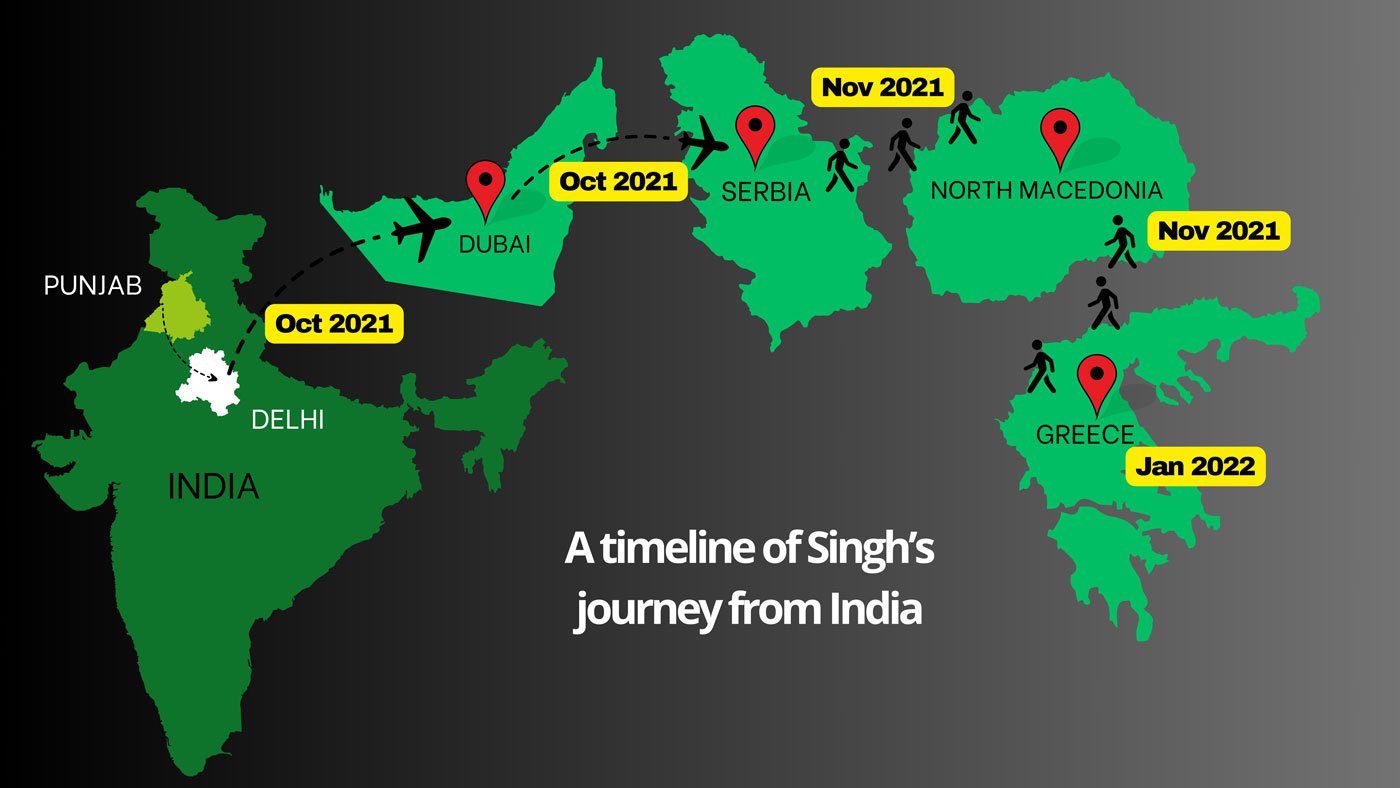
Many young men and women are promised safe passage by agents who pass them on to donkers (human smugglers)
In March 2022, two months after arriving in Greece, Singh made a move to retrieve his passport from the Serbian trafficker. He was advised by his co-workers at the onion farm to leave the country because there was no future for him and getting caught would mean deportation.
So, the young man from Punjab once again risked his life to be smuggled this time. “I prepared [mentally] to leave Greece. I thought I would have to risk my life one last time.”
He identified a new agent in Greece who promised to take him to Serbia for 800 euros. The money came from his savings of three months working in onion fields.
This time, before embarking, Singh also did some
research of his own and chose the route from Greece back to Serbia, from where
he planned to go via Hungary, to Austria and then Portugal. He was told it was
a tough route because travelling from Greece to Serbia, “if you are caught, you
will be deported to Turkey, wearing only your underwear,” he says.
*****
In June 2022 Singh arrived back in Serbia after walking for six days and nights. In Serbia’s capital Belgrade, he discovered some refugee settlements – Kikinda camp near the Serbia-Romania border and Subotica camp near the Serbia-Hungary border. He says these camps are havens for traffickers who operate the lucrative human smuggling operation.
“There [in Kikinda camp], every second individual is a trafficker. They'll tell you, ‘I'm going to get you there, but it will cost this much,’” adds Singh who did find a trafficker willing to help him reach Austria.
The trafficker (Indian) in the Kikinda camp asked him to "keep guarantee" in Jalandhar. “Guarantee,” Singh explains, is when a middleman holds the cash for both parties — migrant and trafficker — and releases it once the individual has arrived at the intended location.
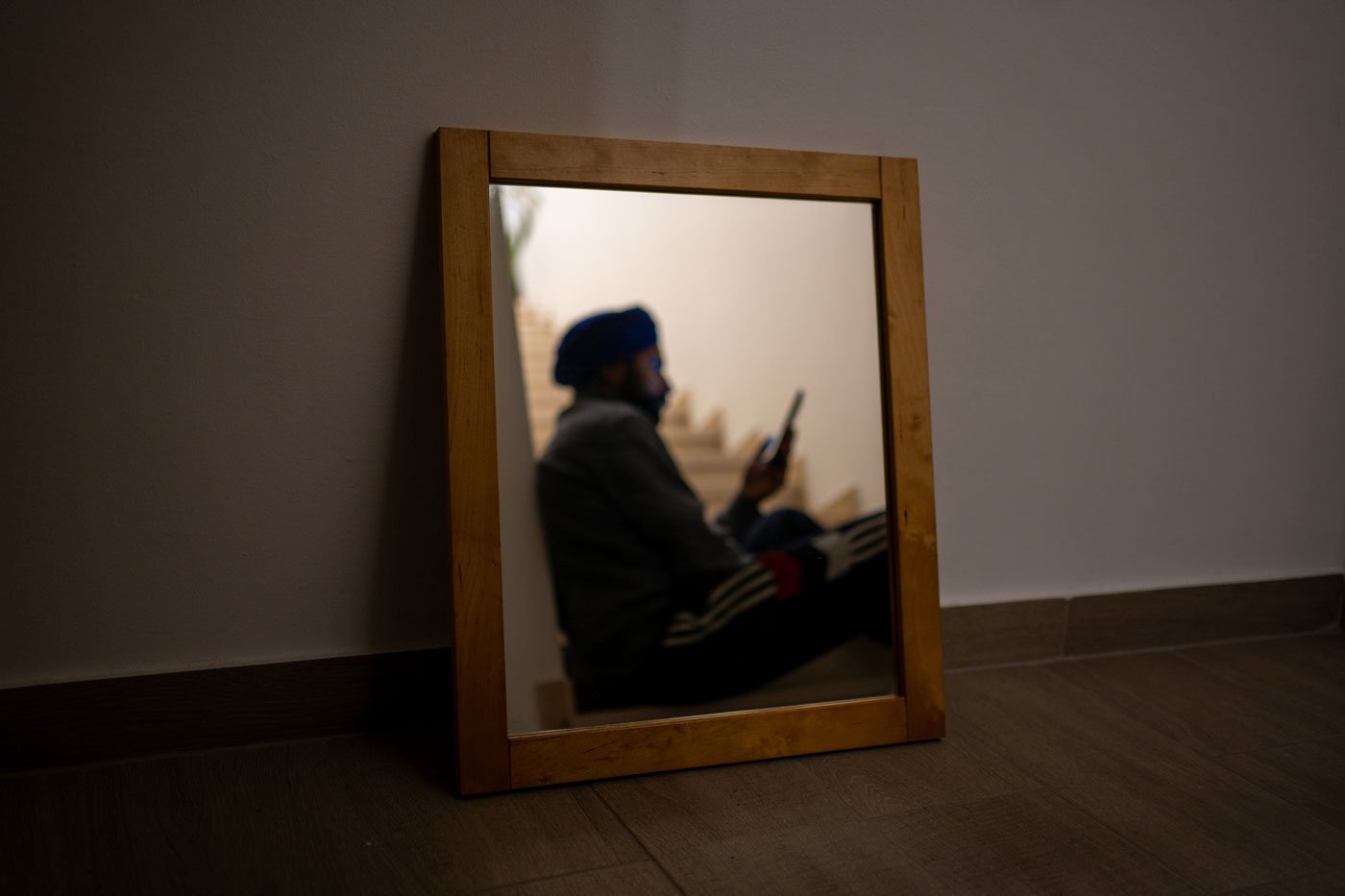
Singh was willing to share his story as he wants the youth of Punjab to know the dangers of illegal migration
Singh arranged a guarantee of Rs. 3 lakhs (3,302
euros) through a family member and headed to the Hungarian border at the
trafficker’s instruction. A few donkers from Afghanistan received him there. At
midnight, they crossed two 12-foot-tall barbed fences. One of the donkers who
crossed with him, made him trek through the jungle for four hours after which
they were detained by the border police.
“They [Hungarian police] made us kneel and asked
about our nationalities. They beat the hell out of the donker. After that, we
[the migrants] were transported back to Serbia,” recalls Singh.
The trafficker suggested the Subotica camp to Singh where a new donker was waiting for him. The next day at around 2 p.m. he returned to the Hungarian border, where 22 people were already waiting to cross but finally only seven including Singh made it across.
Then began a three-hour trek through the jungle with the donker. “Around 5 p.m. we came across a large dry pit. The donker ordered us to lie in it and cover ourselves with dry forest leaves.” A few hours later, they were walking again. Finally, they were picked up by a van and dropped off near the Austrian border and told, “‘walk towards the wind turbines and you'll enter Austria.”
Unsure of where exactly they were and with no food or water, Singh and the other migrants walked through the night. The next morning, they saw an Austrian army post. As soon as Singh saw the Austrian troops, he rushed to surrender because “the country welcomes refugees, and donkers confirm this,” he says.
“They tested us for Covid-19 and took us into an Austrian refugee camp where they took our statement and recorded our fingerprints. After that, we were issued refugee cards with six months validity,” adds Singh.
For six months the migrant from Punjab worked as a
newspaper hawker and managed to save around 1,000 euros. As soon as his stay
expired, he was asked to leave by the camp officer.
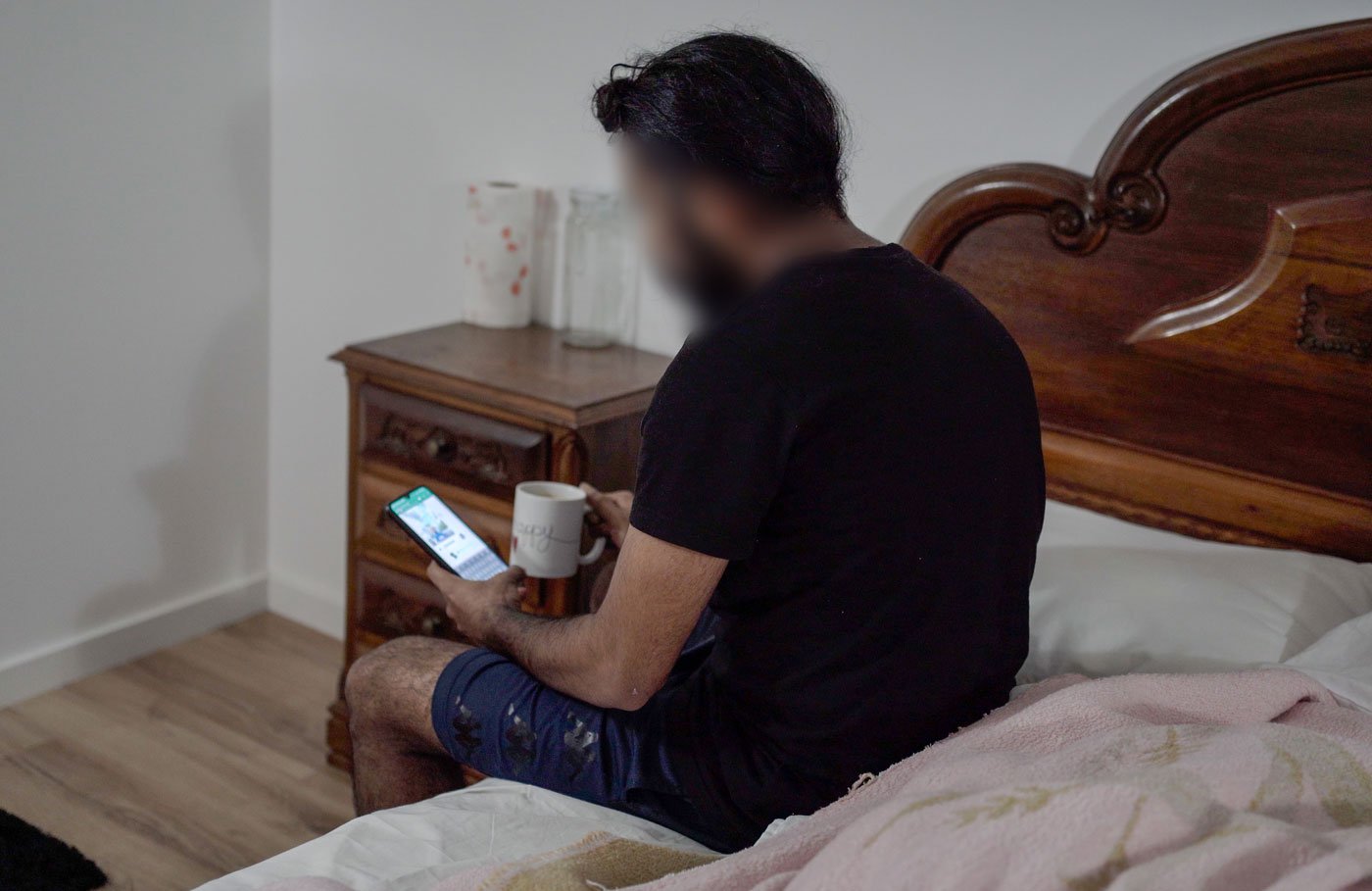
Once in Portugal, Singh makes sure to call his mother in Punjab and reply to her messages and forwards
Then I booked a direct flight to Valencia, Spain (as flights within Schengen areas are rarely checked), and from there a train to Barcelona where I spent a night at a friend’s place. My friend booked me a bus ticket to Portugal because I didn’t have any documents, nor my passport.” This time, he had volunteered to leave his passport in Greece with a friend because he did not want to be deported to India if caught.
*****
On February 15, 2023, Singh finally made it by bus to Portugal – his dream destination. It took him just over 500 days to get here.
The Embassy of India in Portugal admits that many migrants “do not have valid residency documents, official figures are not available.” It also adds that in recent years the number of Indians (especially from Punjab and Haryana) has increased significantly owing to the easing of Portugal’s immigration rules.
“Yeha documents ban jate hai, admi pakka ho jata hai, fir apni family bula sakta hai, apni wife bula sakta hai [You can get your documents here. One can become a permanent resident. Later on, he can bring his family or wife to Portugal],” says Singh.
In 2022, over 35,000 Indians were granted permanent status in Portugal, according to data from the Foreigners and Borders Service (SEF). In the same year, roughly 229 Indians sought asylum.
Young people like Singh are desperate to migrate because
they see no future in their own country. The
India
Employment Report 2024
brought out by International Labour Organisation says, “Despite the reasonably
high growth, there has not been commensurate expansion in productive employment
opportunities.”
With no food or water, Singh walked through the night. The next morning he saw an Austrian army post...and rushed to surrender because 'the country welcomes refugees'
Portugal has one of the shortest naturalisation periods in Europe, requiring legal residence of five years to become citizens. Rural folk from India who typically work in the agricultural and construction sectors aim for this migrant journey. Especially men from Punjab, says Professor Bhaswati Sarkar. She is the Jean Monnet Chair at the Centre for European Studies in Jawaharlal Nehru University. “Apart from the well-settled Goan and Gujarati community, many Punjabis work in low-skilled jobs in the construction and agricultural sector in plantations,” she adds.
The big advantage of a Portugal residence permit, also known as a Temporary Residency Card (TRC), is that it permits you to enter over 100 Schengen countries without a visa. However, things are changing – on June 3, 2024 Luis Montenegro of the centre-right Democratic Alliance (AD) in Portugal issued a decree to tighten immigration rules for undocumented migrants.
According to this new legislation, any foreign resident who wants to settle in Portugal will now have to apply for a work permit before travelling here. This is expected to adversely impact migrants from India, particularly Punjab and Haryana.
Other European countries are also hardening their stand on migration. But Professor Sarkar says that such rules will not deter irregular migrants with high aspirations. “Creating opportunities, providing safety and security in countries of origin will help,” she adds.
There are 4,10,000 pending cases with Portugal’s AIMA (Agency for Integration, Migrations and Asylum). Immigrant documents and visas have been extended for another year – till June, 2025 to address a long-standing request from the immigrant community.
In 2021, India and Portugal signed an agreement to formalise ‘sending and receiving Indian workers through legal channels’. The Indian government has signed migration and mobility agreements with a number of European countries such as Italy, Germany, Austria, France, Finland, but on the ground where people are making these decisions, there is little education or information.
When these journalists tried to contact both the
Indian and Portuguese governments for comments, despite multiple enquiries
neither responded.
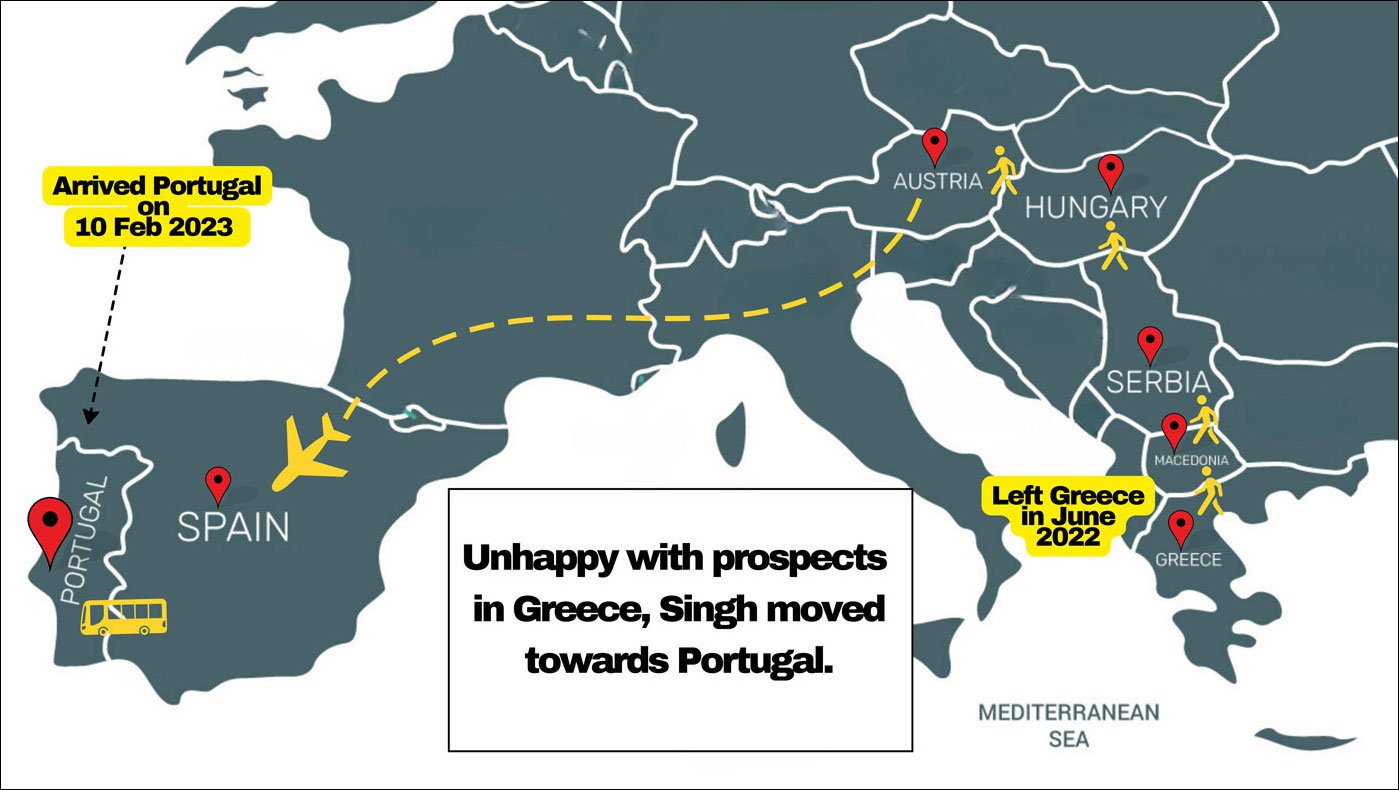
Young people like Singh are desperate to migrate because they are unable to find jobs in India
*****
When Singh made it to his ‘dream’ destination the first thing he noticed was the lack of job opportunities in Portugal as well, made tougher by the challenge of obtaining a residency permit. He didn’t know any of this while making his European plan.
He told PARI, “I felt great when I first arrived in Portugal. Later on, I realised that job opportunities were scarce, and work probability is zero as there are many Asians living here. So, there are hardly any job opportunities.”
Singh also points to the local anti-immigrant sentiment. “They don't like immigrants here, yet we are wanted to do hard labour in agriculture and on construction sites.” Indians work at the hardest jobs, what Sarkar calls “the 3 D jobs - dirty, dangerous, demeaning, which the locals do not want to do.” Because of their precarious legal status, they are ready to work for much less than the prescribed legal wages.
As someone looking for those jobs, Singh notices other things too. At all five branches of a steel factory, instruction boards are written in Portuguese followed by Punjabi. “Even the contract letters come with Punjabi translation. Despite this, if we approach them directly, their response is, ‘there is no work,” says Singh.
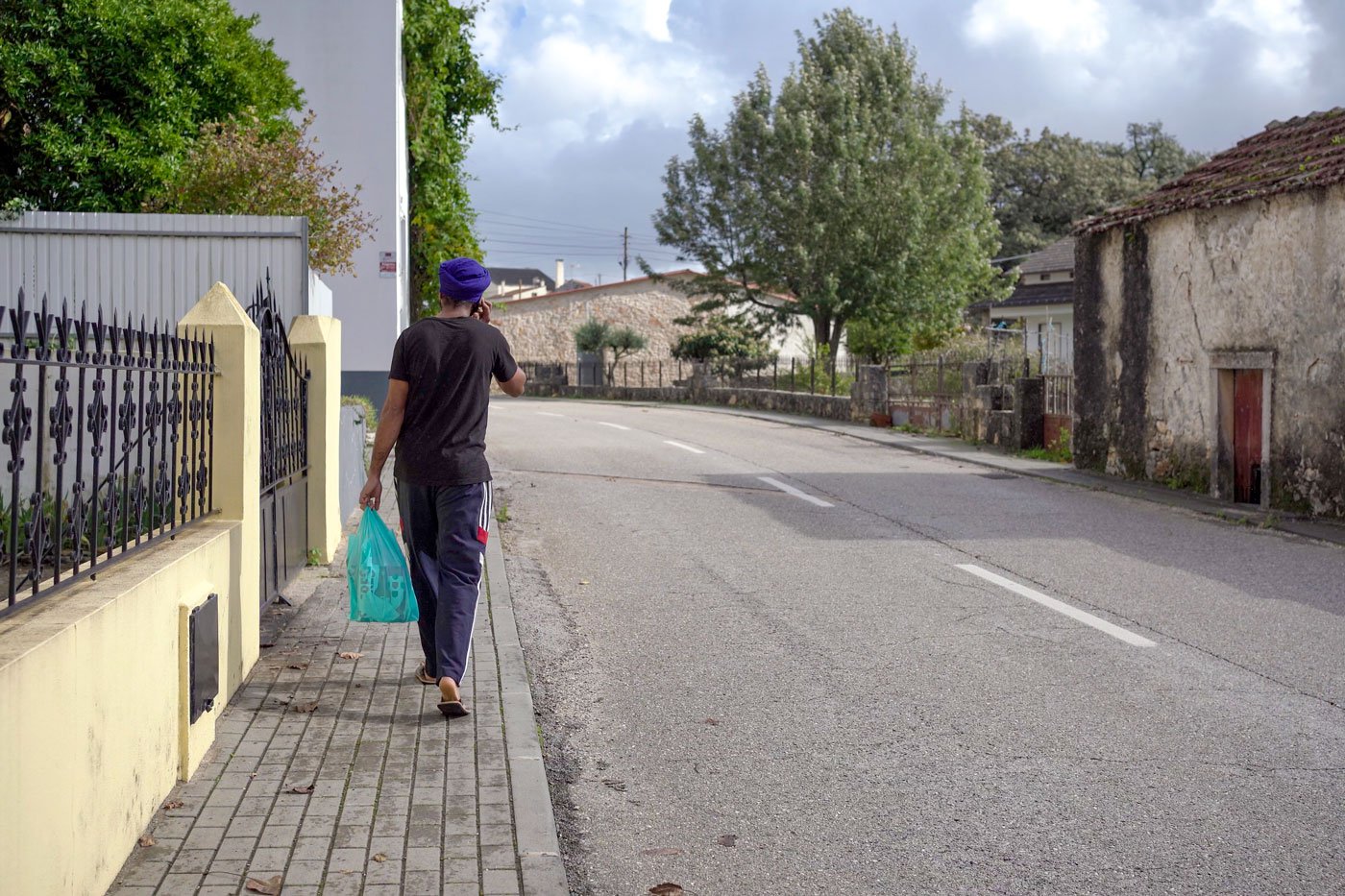
Despite the anti-immigrant sentiment in Portugal, Singh says he is fortunate to have found a kind and helpful landlord here
As an undocumented migrant, it took him seven months to secure a job on a construction site.
“Companies are asking employees to sign resignation letters in advance, in addition to contract papers. Even though they pay the minimum wage of 920 euros a month, employees never know when they will be laid off,” says Singh, who has also signed a resignation letter. He has applied for a resident visa and hopes to be legalised.
“Bas hun tan ahhi sapna aah ki, ghar ban jaye, sister da vyah ho je, te pher ithe apne documents bna ke family nu vi bula laiye [My dream now is to build a house in Punjab, get my sister married, and get legalised so that I can bring my family here]," Singh said speaking in November 2023.
Singh has begun sending money in 2024, and is currently in contact with his parents, who are building their house. His work in Portugal has contributed a significant amount in the blueprint of the house.
Additional reporting by Karan Dhiman from Portugal
This investigation was conducted between India and Portugal with support from Journalism Fund, under the Modern Slavery Grant Unveiled programme.